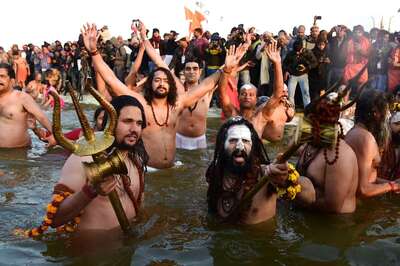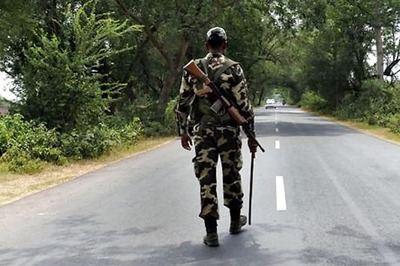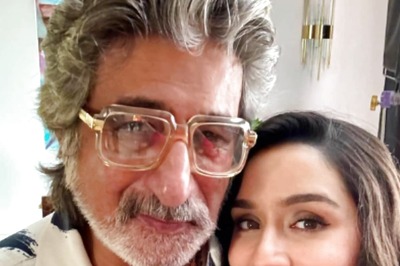
views
One of the several attractions at the Film Bazaar, organised by the National Film Development Corporation of India (NFDC), is the industry screenings, where movies that have just popped out of the cans are exhibited for possible festival selections and theatrical distribution. Running alongside the ongoing International Film Festival of India (celebrating its 50th year), the Bazaar has many such movies. One of them I quite enjoyed was Susant Misra's Josef – Born in Grace.
Misra has had an illustrious career, and his films to name a few – Nischal Baadal, Indradhanura Chai and Biswaprakash – have been screened in some of the most prestigious festivals across the world, and they include Cannes, Cairo, Rotterdam, Sochi, Moscow and Montreal.
Josef – Born in Grace has an impressive star cast. Victor Banerjee, who plays a Christian priest in Misra's work, is one of the most talented actors that India has seen. Having worked with directors as distinguished as Satyajit Ray (Shatranj Ke Khilari, Pikoo, Ghare Bhaire), Shyam Benegal (Kalyug), Roman Polanski (Bitter Moon), David Lean (Passage to India) and James Ivory (Hullabaloo Over Georgie's and Bonnie's Pictures), Banerjee brings his enormous experience to Josef... as Father O'Hara. He essays a missionary doctor who serves the poor in a small hospital on the foothills of the Himalayas. The plot unfolds between 1960 and 1980.
In a tranquil setting that Misra has chosen to tell his story, his movie is paced in a way that reflects the times and the innocence of the period. There is a haunting beauty which Misra captures in detail and delight – as we watch Father O'Hara go about tending to his patients. At home, his caretaker, Maularam (Sudarshan Juyal), helps the priest look after Josef, a baby who was abandoned, a baby that O'Hara finds and brings home.
O'Hara sends Josef to Dehradun for his education and vocational training (to be a cook). Many years later, Josef (Subrat Dutta) returns to Josef's abode – as a great cook, but also bearing a dark spot. He has turned into an alcoholic, much to O'Hara's angst.
The movie has a thin plot, but where it scores is the mood it captures by taking us along the different paths which O'Hara and Josef take. Both seek spiritual fulfilment through their respective duties. While Josef puts his heart and soul into being a good chef, O'Hara brings joy and relief to the sick and the sad men and women, who turn up at his hospital doorstep hoping for miracles.
Yes, some may find the film a trifle repetitive, but life in the hills in those times were precisely this – a series of events which played again and again with singular regularity.
Banerjee scores as the kind priest, whose mission to soothe tortured souls encompasses a baby whose mother abandons him and who finds a warm shelter in O'Hara's nest. In an important way, Banerjee, with his controlled performance and charming subtlety, produces the spark that lights up Misra's narrative style and substance. Which are daringly different from many present-day pictures that appear to be in such a rush.
(Gautaman Bhaskaran is an author, commentator and movie critic)




















Comments
0 comment